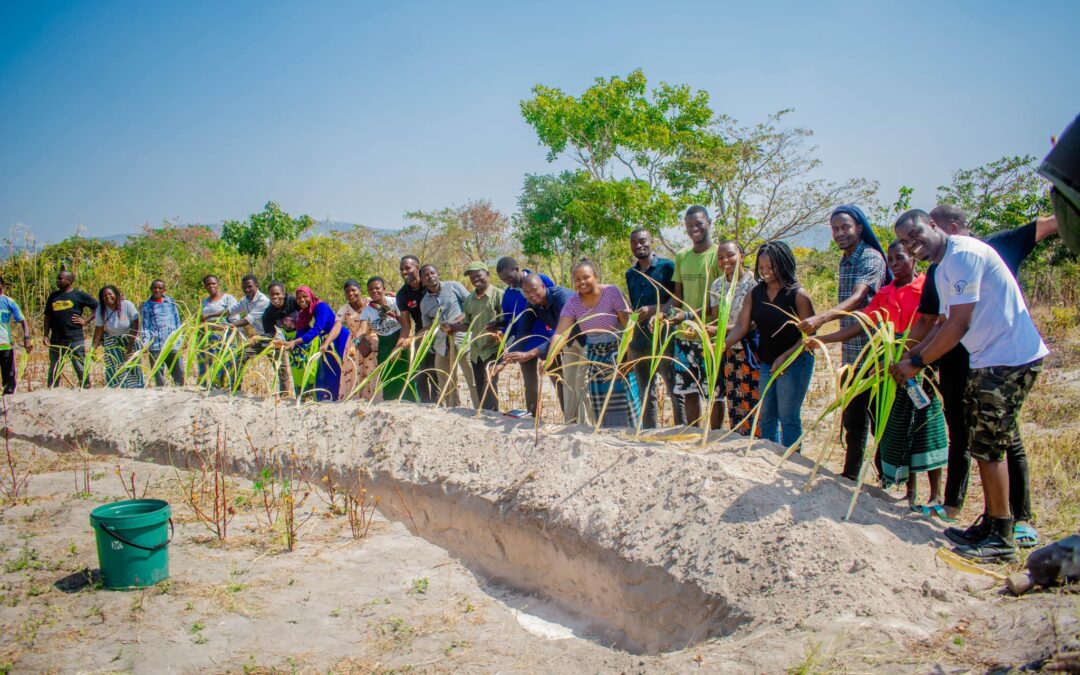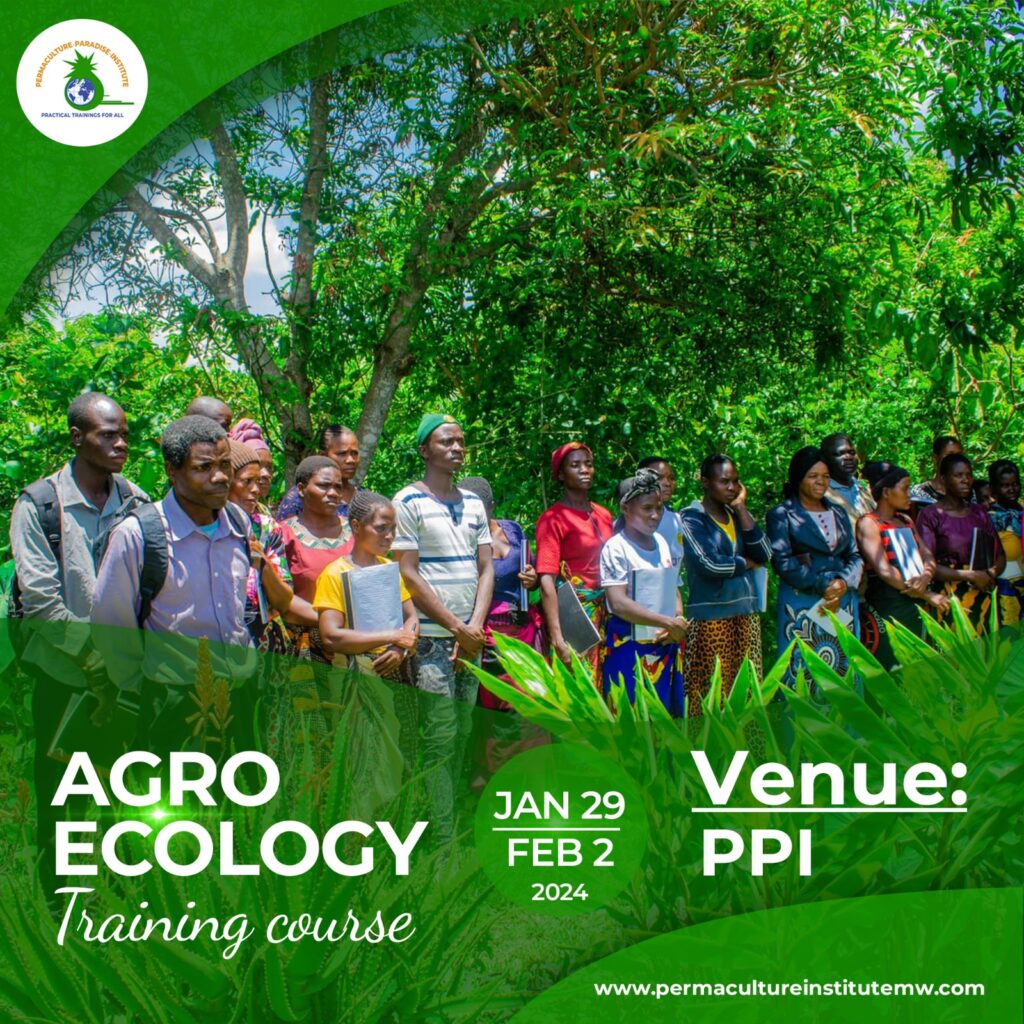Day three of our Agro-Ecology training has been a whirlwind of activity, filled with hands-on experiences that are transforming theoretical knowledge into practical, impactful skills. Today’s focus? Sustainable designs for ecological water management—an area critical for both environmental health and agricultural productivity.
Our morning began with a dynamic workshop where participants dived into the world of water catchment systems. Under the guidance of expert instructors, we explored how to design and implement rainwater harvesting systems that can capture and store precious rainwater, reducing reliance on traditional water sources. The excitement in the room was palpable as attendees sketched out their own designs, imagining how these systems could revolutionize water use on their farms.
Following the workshop, we split into smaller groups for a field exercise that was as enlightening as it was immersive. The terrain was transformed into a living laboratory where we tested various sustainable irrigation techniques. Drip irrigation systems, swales, and contour plowing came to life as we dug, installed, and adjusted these systems on-site. Each group faced unique challenges, from dealing with uneven ground to ensuring efficient water distribution, but the collaborative spirit made overcoming these obstacles a shared victory.
One particularly inspiring moment came when we observed a successful implementation of a bioswale a shallow, vegetated channel designed to manage stormwater runoff. The sight of water trickling through the bioswale, nourishing a vibrant array of plants, was a powerful testament to the potential of these ecological designs. It wasn’t just about managing water; it was about enhancing the landscape and fostering biodiversity.

As the day drew to a close, participants gathered for a debriefing session where stories of successes and challenges were shared. The energy was high as everyone discussed their newfound skills and how they plan to apply these sustainable water management techniques to their own projects. There was a palpable sense of achievement and optimism in the air, proving that these hands-on experiences are not only educational but also empowering.

Tomorrow promises to build on today’s momentum with more practical sessions and expert insights. The journey through agro-ecology is proving to be as enriching as it is educational, and we can’t wait to see what the next chapter holds. Stay tuned for more updates as we continue to explore and innovate in the world of sustainable agriculture!



